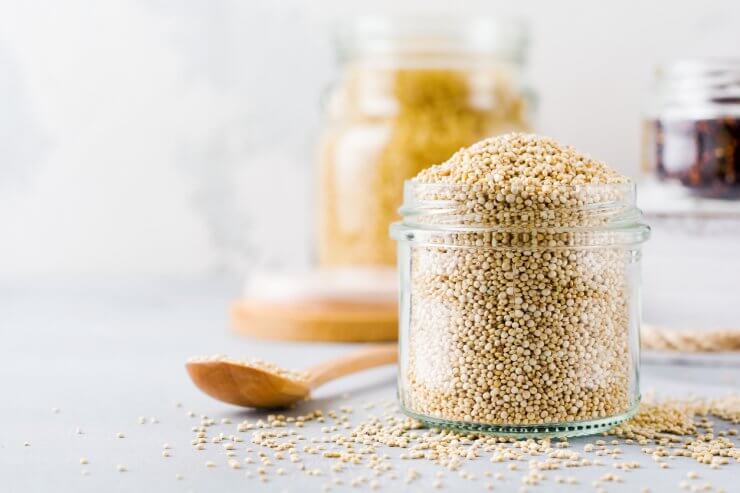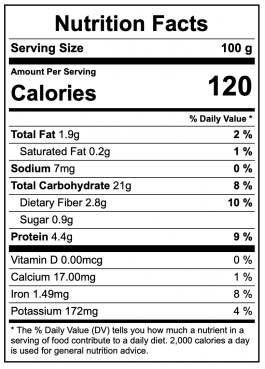
Quinoa in jar
Quinoa is a seed, not a grain, but because it is prepared and eaten like a grain, quinoa is often compared nutritionally to other grains. It is higher in nutrition than most grains, and many nutritionists consider it a “super food”—one of the healthiest foods you can eat. Plus, because it’s not a grain, quinoa is gluten-free. Cooked quinoa consists of 71.6% water, 21.3% carbohydrate, 4.4% protein, and 1.92% fat.
Quinoa is considered exceptional in that it is a plant that provides a complete protein—which means it contains all nine essential amino acids. Your body cannot produce these amino acids by itself; they come from nutrition sources. This characteristic is especially important for vegetarians and vegans looking for complete protein sources.
Here is the nutrition information for 100 grams cooked quinoa:

Quinoa is a good source of antioxidants and minerals, providing more magnesium, iron, fiber, and zinc than many common grains.
The main vitamins and minerals in quinoa are:
- Manganese. A trace mineral essential for metabolism, growth, and development.
- Phosphorus. Essential for bone health and maintaining various body tissues.
- Copper. Important for heart health.
- Folate. A B vitamin, essential for cell function and tissue growth and considered particularly important for pregnant women.
- Iron. Performs many important functions in your body, such as transporting oxygen in red blood cells.
- Magnesium. Important for many processes in your body and often lacking in the Western diet.
- Zinc. Important for overall health and participates in many chemical reactions in your body.
The main plant compounds in quinoa are:
- Saponin. These bitter-tasting plant glycosides protect quinoa seeds against insects and other threats. Rinsing well before cooking will remove the unpleasant taste.
- Quercetin. This powerful polyphenol antioxidant may help protect against various illnesses, such as heart disease, osteoporosis, and certain forms of cancer.
- Kaempferol. This polyphenol antioxidant may reduce your risk of chronic diseases, including cancer.
Did you know all these nutrition facts about quinoa? Please tell us what you think.


 Previous
Previous

